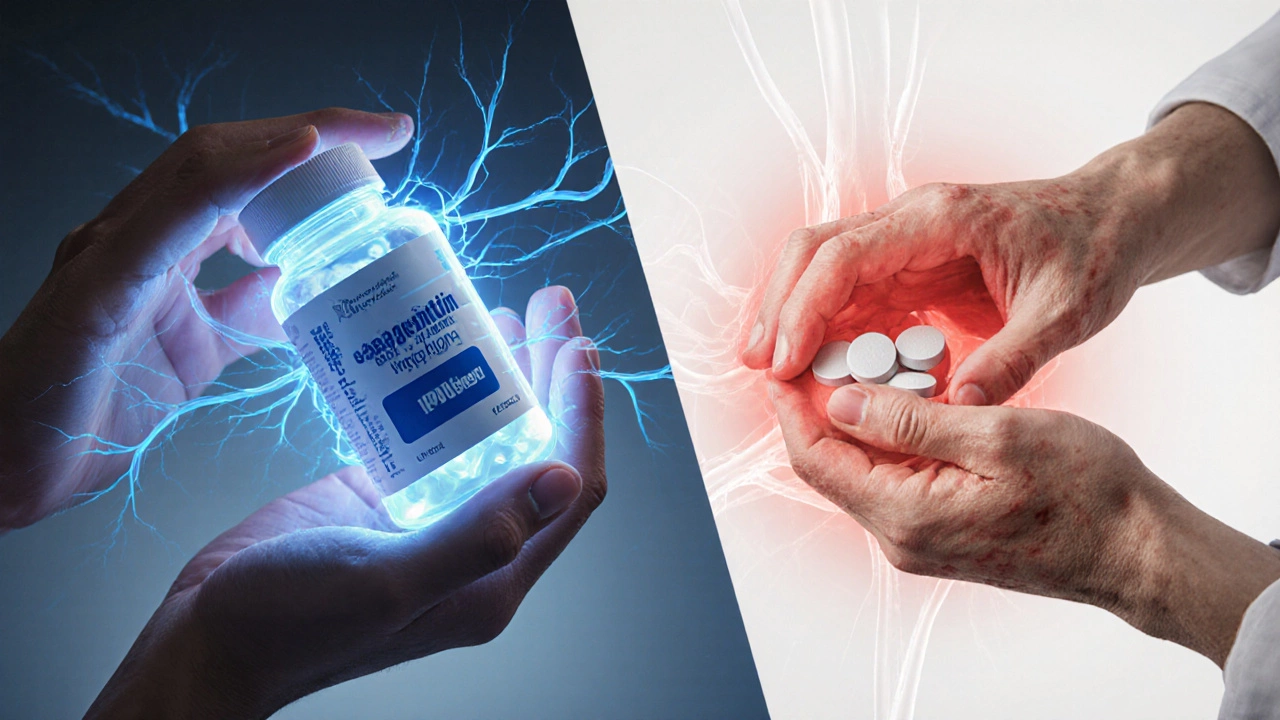Understanding Nerve Pain: What It Is and How It Affects You
If you’ve ever felt a sudden, sharp jolt or a lingering burning sensation, you’ve probably experienced nerve pain. Unlike a regular ache, nerve pain (or neuropathic pain) comes from damaged or irritated nerves. It can show up in your hands, feet, back, or anywhere nerves travel. Because it’s different from muscle or joint pain, the usual over‑the‑counter meds often don’t help.
Common Causes of Nerve Pain
Several things can trigger nerve pain. Diabetes is a big one – high blood sugar can scar nerves over time, leading to a tingling, numb feeling called diabetic neuropathy. Injuries, like a broken bone or a pinched nerve from a herniated disc, can also cause direct damage. Infections such as shingles leave a painful rash that sometimes turns into post‑herpetic neuralgia, a stubborn nerve ache. Even some chemotherapy drugs or long‑term alcohol use can irritate nerves.
Sometimes the cause isn’t obvious. Autoimmune disorders like lupus or rheumatoid arthritis attack the body’s own tissues, including nerves. And for many, aging itself thins the protective coating around nerves, making them more sensitive. Knowing the underlying reason helps your doctor pick the right treatment.
How to Find Relief Fast
First off, don’t rely on plain ibuprofen if you’re dealing with nerve pain. Doctors often prescribe medications that target nerve signals, such as gabapentin, pregabalin, or certain antidepressants. These drugs calm the nerves and can reduce that burning or electric‑shock feeling.
Topical options work well for localized pain. Creams or patches with lidocaine, capsaicin, or even low‑dose THC can numb the area without systemic side effects. If you like a hands‑on approach, physical therapy can teach you gentle stretches and strengthening moves that relieve pressure on nerves.
Lifestyle tweaks make a big difference too. Keep blood sugar stable if you have diabetes, stay active with low‑impact exercises like walking or swimming, and protect your feet with comfortable shoes. Cutting back on alcohol and quitting smoking reduce further nerve damage. Some people find relief with mindfulness, yoga, or acupuncture – they don’t cure the problem, but they lower the brain’s alarm system.
If you’re unsure which route to take, start with a visit to your GP. They’ll check your medical history, run basic tests, and may refer you to a neurologist or pain specialist. Getting a clear diagnosis early can stop the pain from getting worse.
Living with nerve pain can feel frustrating, but there are many tools at your disposal. Combining medication, topicals, movement, and smart daily habits often brings the best results. Keep track of what eases your symptoms and share that info with your doctor – it’s the fastest way to fine‑tune a plan that works for you.
Is Gabapentin a Very Strong Painkiller? What It Really Does for Chronic Pain
Gabapentin isn't a strong painkiller like opioids-it's a nerve-calming medication used for specific types of chronic nerve pain. Learn how it works, who it helps, and what alternatives exist.
Worst Pain a Human Can Feel: Understanding Chronic Pain's True Impact
What's the worst pain a human can feel? This article breaks down what types of pain hit hardest, how chronic conditions affect everyday life, and why some pains just don't let up. Get real-life examples, easy-to-understand tips, and honest advice on both treatment and coping. We dig into why pain is such a personal experience, and what you can actually do if you or someone you know lives with it.
Does Nerve Pain Ever Get Better? Discover What You Can Do
Nerve pain can be a real burden, affecting daily life for many. While it may seem like relief is out of reach, there are pathways to improvement. Exploring treatment options, lifestyle changes, and understanding the journey of nerve pain can make a difference. Effective management and a hopeful outlook might just make things better over time.



